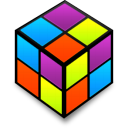Unleash Your Retro Gaming: Top Lakka Alternatives
Lakka stands as a powerful, user-friendly, and cost-effective Linux distribution built on RetroArch, making it a popular choice for retro gaming enthusiasts. It expertly emulates a vast array of hardware, offering features like Braid-like rewinding and joypad hotplugging. However, while Lakka excels in its niche, various reasons might lead users to seek a Lakka alternative. Perhaps you're looking for different platform support, a more specialized feature set, or simply want to explore other options in the vibrant retro gaming ecosystem.
Top Lakka Alternatives
Whether you're a seasoned emulator enthusiast or just starting your retro gaming journey, exploring these alternatives can help you find the perfect system to relive your favorite classic games.

RetroArch
RetroArch is a graphical frontend for emulators, game engines, and media players, and is the very foundation upon which Lakka is built. As a direct Lakka alternative, it offers immense flexibility, supporting a wide range of platforms including Free, Open Source, Mac, Windows, Linux, Web, Android, iPhone, Blackberry, iPad, OpenPandora, Steam, Raspberry Pi, Playstation, and Xbox. Its features include comprehensive controller support, multi-system emulation, and a modular system, making it an excellent choice for those who want granular control over their emulation experience.

SteamOS
SteamOS is a Debian-based Linux distribution specifically designed to run Valve's Steam and Steam games. While not purely an emulator OS like Lakka, it serves as a powerful gaming-focused operating system that can leverage Wine and Proton to run a vast library of Windows games alongside native Linux titles. It's a free and open-source platform, making it a viable Lakka alternative for users who want a dedicated gaming machine with broader PC game compatibility.

LaunchBox
LaunchBox, originally a frontend for DOSBox, has evolved into a comprehensive game launcher and attractive frontend for both modern PC games and emulators. Available on Windows, it offers features like batch import and portability, helping users organize their vast game collections. While it's a freemium model, its powerful organization tools make it a strong Lakka alternative for those prioritizing a clean, unified interface for their emulation and PC gaming libraries.

Retropie
RetroPie allows you to transform your Raspberry Pi or PC into a retro-gaming machine. It's a free and open-source solution, building upon Raspbian, EmulationStation, and RetroArch, among other projects. For users who appreciate the Raspberry Pi's versatility and want a highly customizable, dedicated retro gaming platform, RetroPie serves as an excellent Lakka alternative, offering a robust and well-supported community.

Recalbox
Recalbox is a light embedded system designed for Raspberry Pi, Raspberry Pi 2, and PC x86/x64, transforming them into powerful emulation stations. This free and open-source Linux-based distribution supports multiple systems and specifically mentions Playstation emulation. Its ease of use and dedicated focus on retro gaming make it a direct and highly competitive Lakka alternative, especially for those seeking a streamlined experience on small form-factor devices.

Ludo
Ludo is an open-source emulator frontend that, similar to Lakka, leverages libretro cores to run retro video games. Available on Mac, Windows, and Linux, Ludo distinguishes itself with a focus on a lightweight and intuitive user interface. If you appreciate the libretro ecosystem but desire a different frontend experience than RetroArch or Lakka, Ludo offers a clean and efficient Lakka alternative.

RetriX
RetriX is an open-source emulator frontend built specifically for UWP (Universal Windows Platform), supporting all its hardware platforms including Windows, Windows Mobile, Windows Phone, and Xbox. While serving a similar purpose to RetroArch, RetriX is designed from the ground up for seamless integration with the UWP environment. For Windows and Xbox users seeking a dedicated and well-integrated multi-system emulator frontend, RetriX presents a compelling Lakka alternative.

Batocera.linux
Batocera.linux is an open-source operating system specialized in retrogaming, available for PCs (Windows, Linux) and various single-board computers like Raspberry Pi and Odroid. Like Lakka, it's a complete OS solution for retro gaming, offering multi-system emulation. Its comprehensive support for different hardware and a dedicated focus on providing an out-of-the-box retro gaming experience make it a strong Lakka alternative for users who prefer a full operating system dedicated to their classic games.

Happy Chick
Happy Chick is a multi-system emulator that brings over 18 different systems into one app, making it incredibly convenient for mobile and Windows users. Available on Free, Windows, Android, iPhone, and iPad, it offers a broad range of emulation capabilities. For users primarily focused on mobile or Windows platforms and looking for a consolidated emulation experience without the need for a full OS, Happy Chick can be a convenient Lakka alternative.

Nostlan
Nostlan is a high-quality, open-source frontend launcher for video game emulators, available on Linux, macOS, and Windows. While not an OS itself, it excels at providing an organized and visually appealing interface for your existing emulators and games. For those who already have their emulation setup but desire a slick, modern game launcher that integrates well with their current systems, Nostlan offers a compelling aesthetic and functional Lakka alternative for managing their retro library.
The world of retro gaming emulation is rich with diverse options beyond Lakka. Each of these alternatives offers unique strengths, from full-fledged operating systems to powerful frontends and mobile solutions. Consider your preferred platform, technical comfort level, and desired features to choose the best fit for your ultimate retro gaming experience.